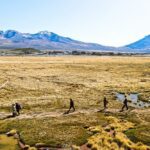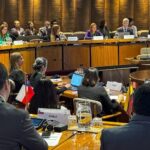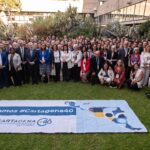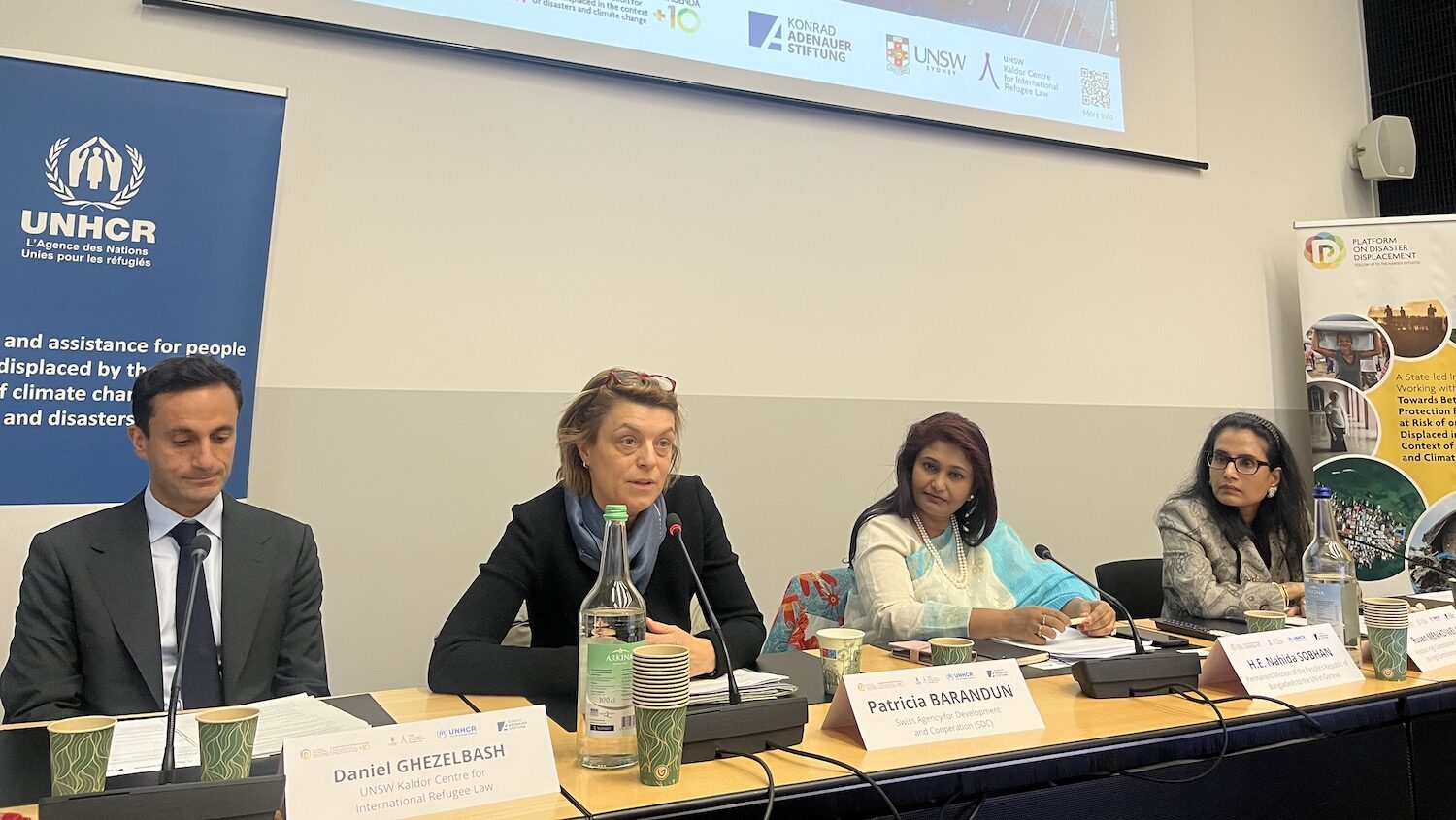Disaster Displacement at the 15th Global Forum for Migration and Development Summit
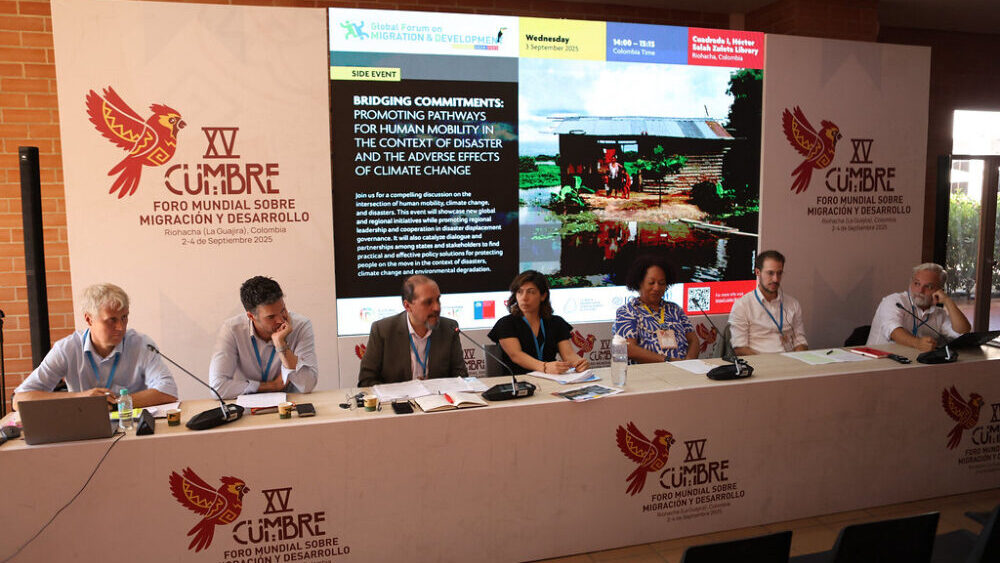
4 September 2025, Riohacha, La Guajira, Colombia – The 15th Global Forum on Migration and Development (GFMD) Summit took place from 2–4 September 2025, hosted in Riohacha, La Guajira, Colombia, under the theme “Regular Migration, Labour Mobility and Human Rights: Pillars of Development and Well-Being of Societies.” The Summit convened governments, international organizations and civil society members, providing an opportunity to exchange perspectives, share knowledge and address current challenges and opportunities at the intersection of migration and development.
A total of 1500 participants attended the Summit, including 71 States, 118 representatives of civil society, 32 from the Mayors Mechanism, 29 from the Business Mechanism, 90 participants from international organizations, 300 official Colombian delegates, and members of the media. Participants engaged at 6 expert panels, 21 side events, 6 roundtables, and 5 dialogues.
Bridging Commitments: Supporting Resilience and Promoting Pathways for Human Mobility
The Platform on Disaster Displacement (PDD) co-organized a side event in partnership with Switzerland and Chile, which featured panelists and experts from the International Organization for Migration (IOM), the United Nations High Commissioner for Refugees (UNHCR), and the Climate, Migration and Displacement Platform (CMDP) titled “Bridging Commitments: Supporting Resilience and Promoting Pathways for Human Mobility in the Context of Disasters and Climate Change” on 3 September 2025. This side event explored the growing links between climate change, disasters, and human mobility.
Mr. Atle Solberg, Head of the PDD Secretariat, moderated the side event and framed the discussion within the Summit’s overarching theme. He highlighted the importance of incorporating human mobility into disaster risk reduction and climate change adaptation measures to strengthen resilience, stressing the need to “make migration a choice and not a necessity” and to “develop and implement protection-sensitive protocols and pathways when people are compelled to move.”
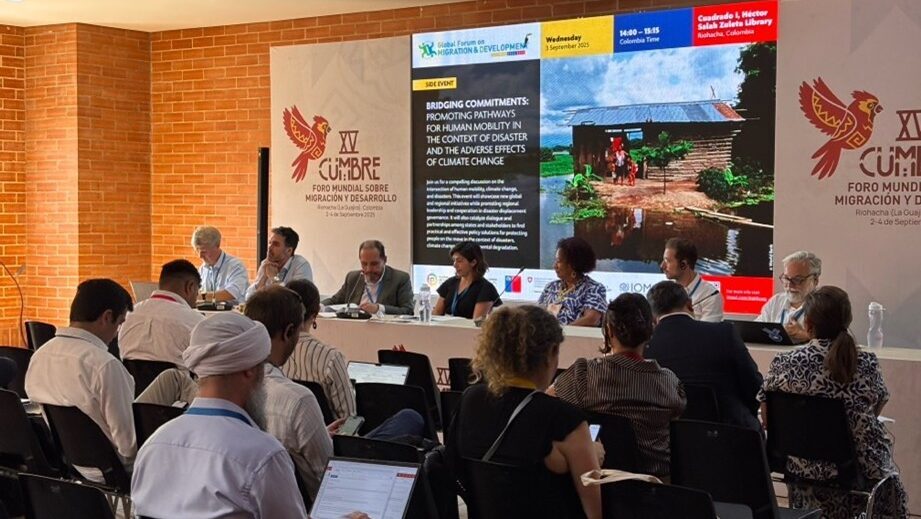
The event also marked the launch of Switzerland’s Global Program on Climate Change and Human Mobility in Sub-Saharan Africa. Mr. Guillaume Lévy, Program Manager from the Swiss Agency for Development and Cooperation (SDC) presented the Program and highlighted the crucial role of development approaches in addressing the challenges of human mobility in climate change and disaster contexts. He also underlined the importance of South-South cooperation and how experiences at the regional level should and could inform global policies and global discussion, for example in the context of the GFMD.
People affected by climate change must not only have the right to choose — to stay, to move, or, in the case of disasters, to return — but also the means to do so safely, with access to information, resources, and protection.” – Mr. Guillaume Lévy, SDC
Ambassador Pedro Hernández, Head of Migration Division, Ministry of Foreign Affairs, Chile introduced a range of relevant regional initiatives and effective practices, including the Chile Declaration and Plan of Action 2024-2030 adopted in December 2024 in Santiago de Chile, Chile. Together, these initiatives showcased how regional and global leadership can foster practical, rights-based, and forward-looking responses to climate and disaster-related human mobility. Ambassador Hernandez also referred to the long-standing collaboration between Chile and the PDD and the likely and formal entry of Chile to the Steering Group of the PDD in September 2025.
Ms. Ema Vueti, President of the Pacific Islands Council of Queensland Inc. and member of the Climate Migration & Displacement Platform (CMDP) highlighted the adoption of the Pacific Regional Framework on Climate Mobility as a milestone in the Pacific. The Framework reflects a collective commitment to protect communities, ensuring that when movement becomes necessary, it happens in a safe, dignified, and rights-based way.
Latin America and the Caribbean has greatly advanced a strong focus on the human rights implications of climate mobility, through the work of the Interamerican Commission on Human Rights and the Interamerican Court on Human Rights. The progress on policy development needs to be matched with concrete implementation and monitoring and evaluation efforts to reach the people most in need.” – Mr. Pablo Escribano, IOM
Other Relevant Sessions
The PDD Secretariat also contributed to the GFMD Roundtable 4: “Climate Change: Safe Labour Routes as a Bridge to Prosperity.”, which is co-chaired by Bangladesh and Nigeria. This session focused on how safe labor pathways can serve as an adaptive and resilience-building strategy for communities affected by environmental degradation and climate change. It provided an opportunity to exchange lessons learned, strengthen cross-regional dialogue, and advance cooperation on innovative approaches to migration governance.
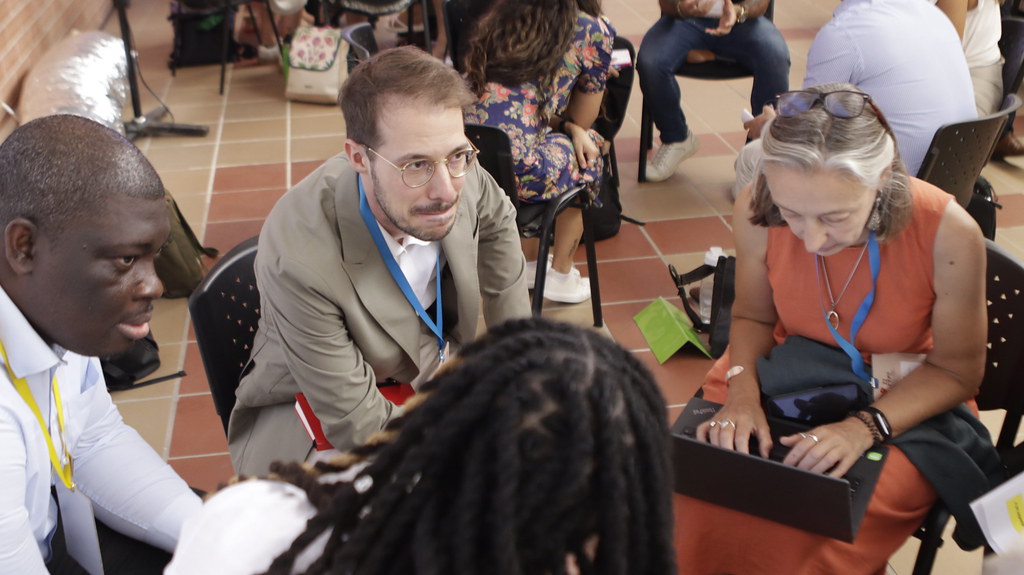
Beyond these flagship contributions, PDD engaged in other discussions throughout the Summit, reinforcing its long-standing partnerships with States and organizations in multilateral processes such as the South American Conference on Migration (SACM) and the Cartagena+40 Process.
At the closing of the Summit, several speakers underscored the centrality of climate change in their reflections. The Ombudsperson of Colombia, Ms. Iris Marín, emphasized the urgent need to recognize the challenges and implications of climate change for human mobility, not only from a humanitarian perspective but also with regard to the losses and damages experienced by affected communities. This intervention reaffirmed the importance of maintaining disaster displacement as a priority on the global migration and development agenda.
Looking ahead, the PDD will remain attentive to the future of the GFMD and actively support regional processes that complement the Forum’s discussions and outcomes. In doing so, PDD will continue to advance the implementation of regional commitments, helping to ensure that the GFMD remains an important platform to strengthen cooperation, promote solidarity, and protect people forced to move in the context of disasters and climate change.
Cover Photo: Cancillería Colombia


